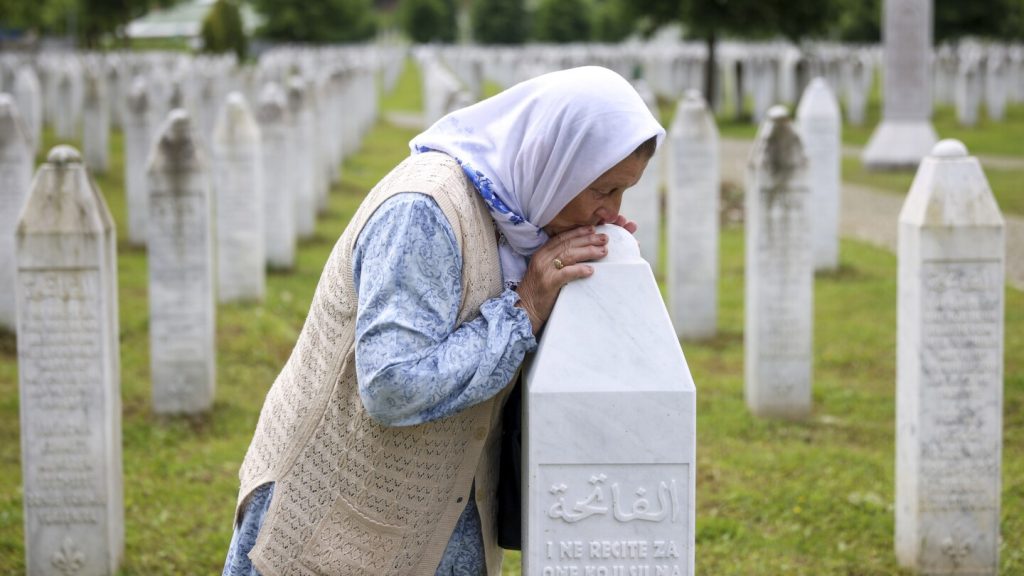The leader of Bosnia’s Serb-controlled territory, Milorad Dodik, has reiterated his threat to secede from Bosnia-Herzegovina ahead of a U.N. vote on establishing an annual day to commemorate the 1995 genocide of over 8,000 Bosnian Muslims by Bosnian Serbs. Relatives of the victims view the U.N. vote as historic in ensuring that the deaths cannot be denied or forgotten. The proposed resolution has sparked protests by Dodik and Serbian President Aleksandar Vucic, who fear that it would brand all Serbs as genocidal, even though the resolution does not explicitly mention Serbs. Both Serbia and Bosnian Serbs have denied that genocide happened in Srebrenica, despite established rulings by two U.N. courts.
For the women who lost loved ones in the massacre, any denial of the crime has caused more grief. The U.N. vote holds significant meaning for the victims, truth, and justice, according to Munira Subasic from the Mothers of Srebrenica group. She believes that those who deny genocide will need the resolution more than the victims themselves, as it will prevent the glorification of war criminals. Nura Begovic, who also lost family members in Srebrenica, hopes for a fair decision that will bring justice and humanity. The massacre occurred in 1995 when Bosnian Serbs separated thousands of Muslim men and boys from their families and killed them.
The U.N. General Assembly is set to debate and vote on the resolution, with Serbia and its allies, Russia and China, opposing it, while the U.S. and Western states support it. Dodik claims that the resolution is being forced by supporters of Muslim Bosniaks and threatens to propose a separation of the Serb-controlled territories from Bosnia. The Srebrenica killings were the culmination of the Balkan war after the breakup of Yugoslavia, fueled by nationalist passions and territorial ambitions. The International Court of Justice has determined in 2007 that the acts committed in Srebrenica constituted genocide, a statement included in the draft resolution.
President Vucic of Serbia has been campaigning against the resolution, fearing possible war damages and trials for active participation in the Bosnian conflict. The draft resolution condemns any denial or glorification of convicted war criminals, including those responsible for the Srebrenica genocide. Bosnian Serb wartime leaders Radovan Karadzic and Ratko Mladic were convicted of genocide in Srebrenica by a special U.N. tribunal, along with nearly 50 Bosnian Serb officials sentenced to prison. Despite these convictions, most Serbian and Bosnian Serb officials still celebrate Karadzic and Mladic as heroes and downplay or deny the Srebrenica killings.
The resolution has received strong opposition from Serbian and Bosnian Serb officials who continue to deny or downplay the genocide in Srebrenica. Many survivors and relatives of the victims feel deeply offended by the denial and see it as a lack of acknowledgment of the tragedy. Mejra Dzogaz, who lost three sons, her husband, and grandson in the massacre, questions what more evidence is needed to prove the genocide, as she looks at the vast memorial center in Srebrenica with thousands of white tombstones for the victims. The outcome of the U.N. vote on the resolution will have significant implications for acknowledging the Srebrenica genocide and seeking justice for the victims and their families.


